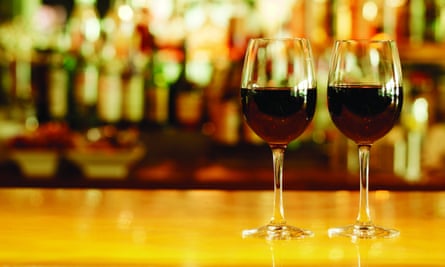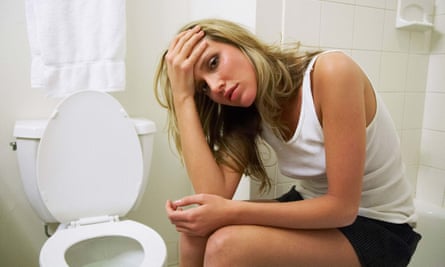Alcohol. It’s a popular social lubricant, provides pleasure, and often tastes nice. It also has long term health consequences, and imposes a heavy burden on our society. Overall, it’s a mixed blessing.
At present it’s becoming ever-more fashionable, even charitable, to abstain from alcohol for the month of January. After the indulgence of the Christmas period, it’s hardly surprising people will want to do something healthy, and what could be healthier than giving up alcohol?
But is that actually a rhetorical question? There are debates as to whether or not alcohol is good for you, or whether giving it up has any benefits. Nobody seems to have a straight answer, so I thought I’d offer my own experiences. I abstained from alcohol last January, but as a trained neuroscientist I opted to keep detailed notes as to my physical and mental state as the month progressed, to see what the absence of alcohol did to me. I wasn’t a problem drinker (and still am not as far as I know), but I did like a glass of wine of an evening, and met with friends in the pub once a week or thereabouts. So how would a sudden absence of this chemical depressant effect me?

Day 1
No change that I can detect at present. But then I did go out last night, must have had about 10 units, so odds are it’s still in my bloodstream, given how long it takes the liver to clear it out. Also my head feels like I’ve had my brain replaced with concrete and broken glass and my stomach seems to be trying to declare independence from my body, but then that’s to be expected.
Day 3
Pretty sure it’s all out of my system now. Starting to feel somewhat sharper and focused admittedly, but that’s probably just my brain returning to normal levels of functioning.
Day 5
Find myself feeling more energetic, possibly because my liver doesn’t have to spend so much time clearing the alcohol out of my system. As a result, it can provide more energy and important metabolites. I decided I should put this enhanced function to good use, maybe use this opportunity to build up my liver’s important mineral stores, like iron. This scheme was aborted when my wife caught me trying to eat a box of nails. I had assumed it was alcohol causing me to have impaired judgement, but it’s possible this is my default state of being.
Day 7
My memory is improving. Several times today my wife has made statements that she has made at other times over the past two years and I was able and willing to point out exactly when she said them and how she ended up being wrong each time. I am also able to sleep better now, which is handy as I’m doing a lot of it on the sofa.

Day 10
Met up with some friends in the pub last night. As I’m not drinking I just had apple juice and put the time to good use by explaining to each of them the damage they were doing to themselves with their alcohol consumption and pointing out how much better I am now due to me not drinking. I had to leave early in the end as they started getting hostile, which is another effect of alcohol I hadn’t considered. I pity them and their stunted experience of the world.
Day 12
Energy levels and focus continue to increase, making me feel stronger and more agile all the time. It occurs to me that I may have been bitten by a radioactive spider while I slept. Ergo, I may be Spider-Man? I have not noticed any extra glands for secreting web fluid, but with my enhanced cognition it shouldn’t be a problem to assemble an efficient wrist-mounted apparatus for simulating this.
Day 13
Just got home from hospital after being treated for injuries caused by my falling off the building I was attempting to scale. I got a stern telling off from the doctor, both for my ridiculous behaviour and for interrupting him constantly to tell him I’m not drinking.
Day 16
My improved focus and cognition mean I am far more productive. Today I calculated my taxes for the next 5 years using an exquisitely complex algorithm that I came up with that deduces my incomes and outgoings with less than a 0.05% margin of error, reorganised the house so that the air flow ensures maximum efficiency of the heating system, and solved Fermat’s last theorem while making some toast. I was going to write it down, but with my vastly improved memory there is no need.

Day 19
I’m starting to remember things from my early childhood. Like, really early, from birth to 6 months old, in exquisite detail. So embarrassing, how could I have soiled myself so often? What was I thinking!
Day 21
Decided to count all the atoms in the house. My wife told me that this was a ridiculous endeavour as you can’t know both the position and velocity of an elementary particle due to the uncertainty principle. I told her this was just a misconception by people who weren’t focused enough.
Day 24
About half way through counting all the atoms in my house, have done the ground floor and upstairs bathroom, but I keep getting distracted by a low hissing sound. After ruling out all possible sources in my home, I realised I was now hearing the echoes of the Big Bang. Exactly how my brain’s hearing system, which responds to changes in air pressure, was detecting low-level radiation is uncertain, but I guess that’s what giving up drinking does to you.
Day 27
I don’t need to keep these notes anymore. I see all. I know all. I remember all. With my enhanced mind and brain, it is my duty to bring enlightenment to all those lesser beings. And I will do so. By force if necessary. How could anyone stand against me? They are but insects to the God-like status I have achieved.
Day 31
Told some rugby fans in town that they should submit to my teachings or face the wrath of my almighty brain. They wedged me upside down in a bin. I really need a drink right now.
Day 32
Had a drink. Feel much better now. I remember something about Spider-Man and being a God, but that was probably just a dream.

So there you go. In truth, the impact of giving up drinking is something that can’t really be generalised in any useful way as it depends on so many factors. Your regular intake, you age, body type, diet, genetics, family history, all of it.
Each person responds differently, and while abstaining from alcohol is probably a good move overall in a health-sense, don’t expect it to be some ‘magic bullet’ that solves all your problems in one easy step. It might even have a negative impact, like making you think up ridiculous events for the amusement of strangers online.
Dean Burnett isn’t drinking this month, but doesn’t expect you to sponsor him so don’t worry. @garwboy
- The Idiot Brain by Dean Burnett (Guardian Faber, £12.99). To order a copy for £7.99, go to bookshop.theguardian.com or call 0330 333 6846. Free UK p&p over £10, online orders only. Phone orders min. p&p of £1.99.

Comments (…)
Sign in or create your Guardian account to join the discussion